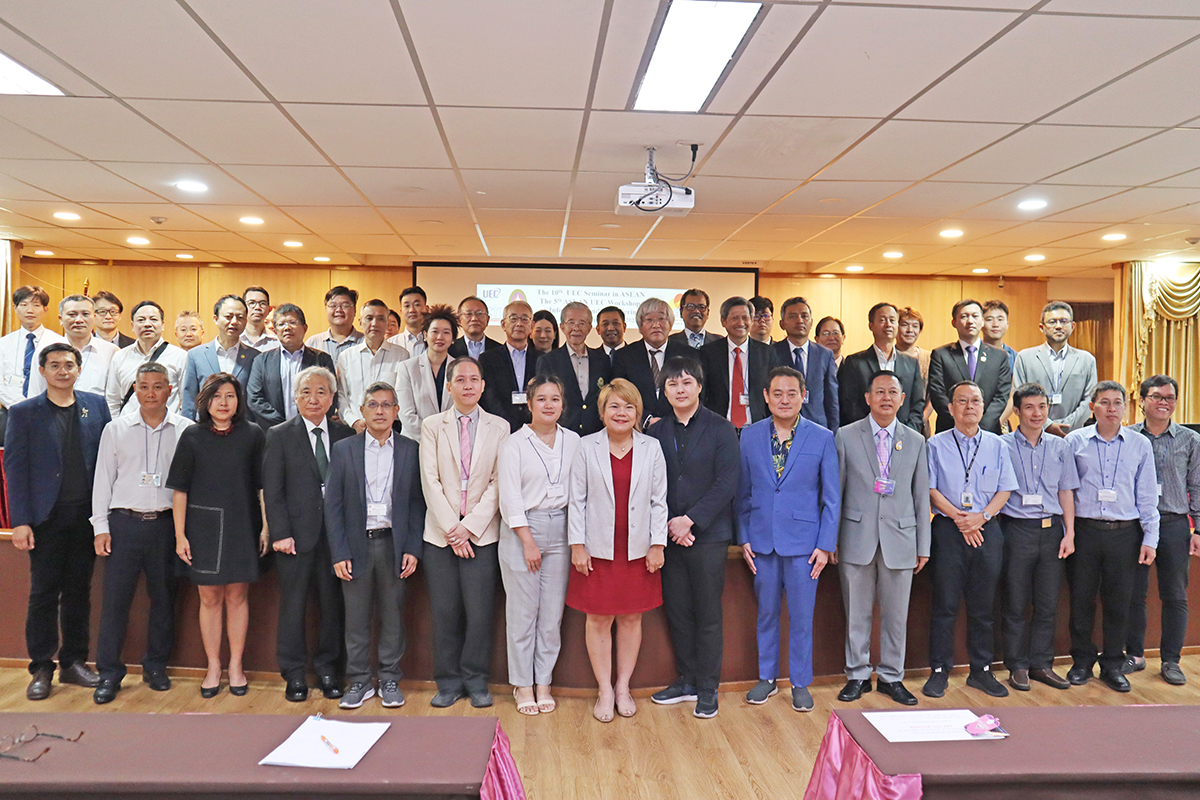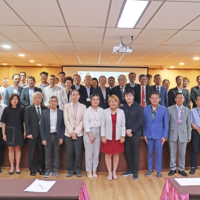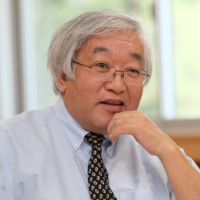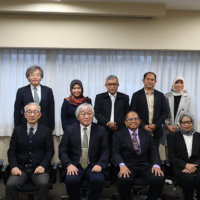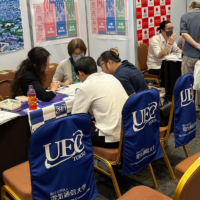The University of Electro-Communications is a national university in the city of Chofu in Tokyo’s Tama area. Unlike many institutions, all of its divisions, including the graduate school, are housed on a single campus, ensuring a unified presence.
The sinking of the British luxury liner Titanic in 1912 underscored the vital importance of radio communications for maritime safety. The impact was so profound that the installation of radio equipment on ships became mandatory in 1914. Recognizing the need for expertise in this field, the Technical Institute for Wireless-Communications was established in 1918. This institute later developed into what is now known as the University of Electro-Communications.
The university originated as a school for telecommunications, but has evolved with the times. While its name might suggest a sole focus on electricity and telecommunications, it now encompasses a broad spectrum of scientific and engineering disciplines. These range from basic to applied research in fields such as materials science, life science, optical science, electronics, robotics, mechanical engineering and media, with a core foundation in information, electricity and telecommunications.
Toward ‘Society 5.0’
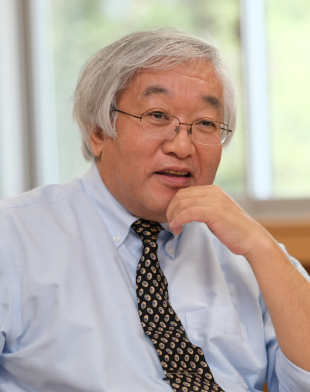
As the world steps into an era where groundbreaking technologies pave the way for transformative societal shifts, the government has embraced a vision of a future supersmart society where cyberspace and the real world will be intricately merged. Actively supporting a series of initiatives to bring this vision to life, the government has dubbed it “Society 5.0” and is dedicated to its continual evolution. In line with this, UEC President Shunichi Tano articulated his aspirations, saying, “We aim to be an institution in supporting the realization of Society 5.0.”
The fundamental and core technological domains required to construct this envisioned future society largely align with UEC’s primary academic disciplines. Leveraging this alignment, UEC has laid the foundation for both nurturing the requisite human talent and undertaking the essential research to build Society 5.0.
Exchanges with schools
With the coronavirus pandemic now under control, the travel and behavioral restrictions that lasted for over three years have finally been eased. UEC has been proactive in welcoming students and researchers from many countries, especially from the ASEAN region and beyond. Given that ASEAN represents a potential global partner for Japan in collaboratively addressing various challenges, UEC will continue to deepen these exchanges in the coming years.
Over the years, UEC has forged robust relationships with universities across the ASEAN region. As of now, UEC boasts partnerships with 19 universities in the region, with three in Indonesia, five in Thailand, 10 in Vietnam and one in Malaysia. Additionally, UEC is hosting a diverse group of 41 international students: 14 from Indonesia, two from Thailand, 14 from Vietnam, nine from Malaysia and two from Cambodia.
JUSST program
To enhance student collaborations with partner universities abroad, UEC offers the Japanese University Studies in Science and Technology short-term exchange program. Under JUSST, students from its global partner universities, particularly from eight affiliated institutions in the ASEAN region, are given the opportunity to study at UEC for a duration of up to one year.
While participating, these international students can enroll in specialized science and engineering courses taught in English. They also have access to courses on academic skills that sharpen their proficiency in writing papers and giving presentations, as well as classes focusing on Japanese culture and language. Furthermore, they can affiliate themselves with specific laboratories, delving into research activities guided by a faculty adviser.
International programs
UEC has launched the Special Program for Priority Placement of International Diplomat Students, a Ministry of Education, Culture, Sports, Science and Technology initiative, to welcome exceptional international students. This program fosters collaboration with government-sponsored students by inviting both self-financed and Japanese students to join specific events and courses. The goal is to bridge linguistic and cultural gaps, shaping students into globally engaged individuals.
Previously, two distinct programs were offered. The Multifaceted International Collaboration Hubs human resource development program was designed with the aim of nurturing engineers and researchers with versatile expertise and promoting a global perspective among its participants.
Meanwhile, the Fusion of AI and Quantum Sciences program presented an intersection of quantum science and artificial intelligence. With a forward-thinking approach, it sought to cultivate international engineers and researchers who weren’t just limited to their core areas of expertise.
Marking a new chapter, UEC inaugurated the Self-Evolving Smart Societies program in October. This initiative is dedicated to developing individuals capable of addressing and offering solutions to pressing global energy challenges.
Links with ASEAN countries
UEC actively collaborates with government agencies across the ASEAN region, focusing on the training and exchange of government officials and researchers.
In a collaborative initiative with the Vietnam Government Information Security Committee, UEC has welcomed five government officials into its doctoral program. These students have demonstrated exceptional research outcomes during their tenures.
Similarly, in collaboration with the Ministry of Information and Communication of Indonesia, UEC annually accepts two scholarship students, targeting young researchers and engineers in sectors related to information and communication technology within the government. Once admitted, these scholars can advance to a master’s degree program. Currently, there are four master’s students and two research students from this initiative enrolled at UEC.
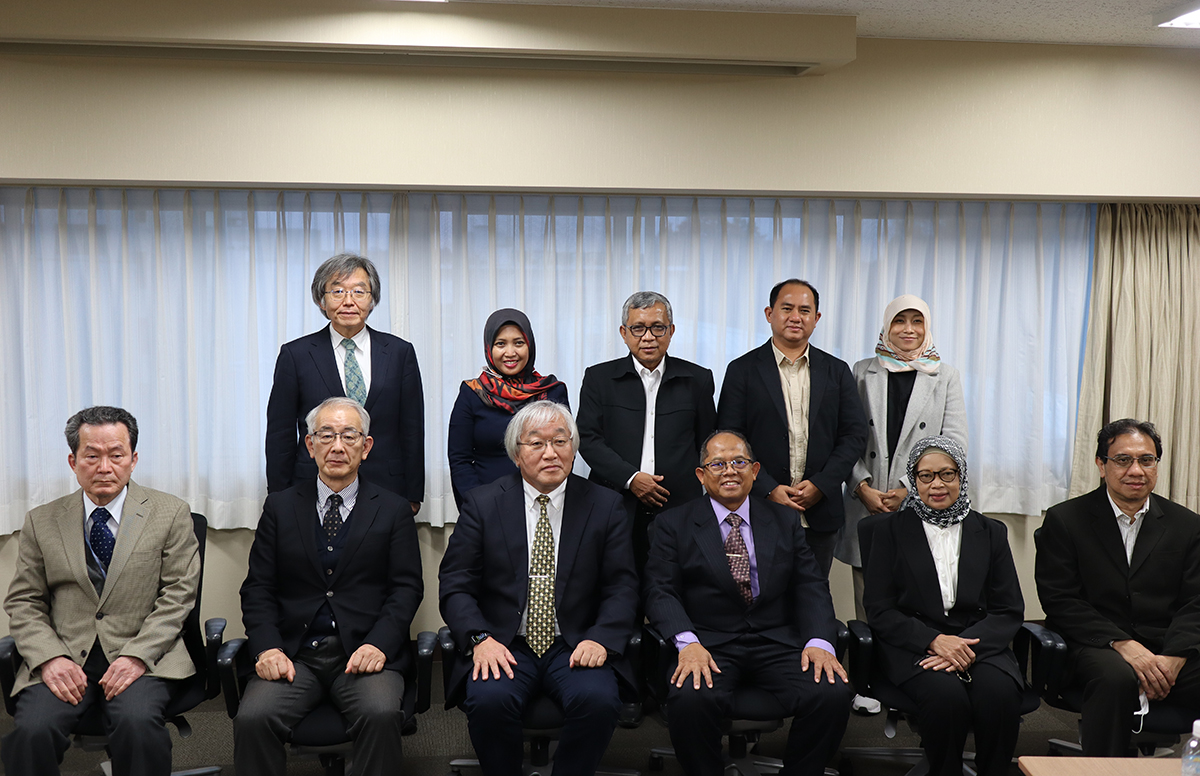
UEC collaborates with the governments to co-sponsor the education expenses for those incoming students. While UEC offers waivers for tuition, as well as admission and examination fees, the respective governmental agencies provide scholarships and additional financial aid. This joint effort significantly reduces the financial strain on international students, enabling them to concentrate wholeheartedly on their academics and research.
UEC’s international outreach also encompasses Malaysia. Via the Malaysian Government Personnel Authority initiative, UEC has been welcoming students from that country. This program aims to nurture the next generation of Malaysians who will drive their nation’s development and modernization by affording them an education at Japanese institutions. After completing two years of foundational education in Malaysia, students who meet the ministry’s standards in the Examination for Japanese University Admission for International Students, along with the final assessments of their preparatory institutions, qualify to commence their first year of undergraduate studies at a Japanese national university. At present, UEC is the academic home to four such Malaysian government-sponsored students.
UEC ASEAN Research Center
In 2014, to support its cooperation with universities and companies in the ASEAN region, UEC set up the UEC ASEAN Research Center. This center is located in the Knowledge Exchange for Innovation Center at King Mongkut’s University of Technology Thonburi in Bangkok, a partner institution of UEC.
Following the establishment of the center, the annual UEC Seminar in ASEAN was inaugurated in 2015, attracting representatives from universities, businesses and government agencies throughout the association. In addition, from 2019 onward, the ASEAN-UEC Workshop on Informatics and Engineering was introduced in the ASEAN region. This workshop was created specifically as a platform for students and faculty from both UEC and the ASEAN region to collaboratively present and discuss their research findings.
These seminars and workshops serve as invaluable platforms for networking and information exchange between UEC and educational and research institutions, businesses and government agencies in the ASEAN region. Each event significantly contributes to the enhancement and expansion of educational and research collaboration between UEC and ASEAN.
International internships
In cooperation with top-class research institutions, universities and private companies, UEC has developed a substantial international internship program. Annually, approximately 10 students immerse themselves in real-world learning through internships across the ASEAN region. In a notable move in December 2010, UEC forged an agreement with the National Science and Technology Development Agency in Thailand, enabling students to undertake internships at esteemed research centers like the National Electronics and Computer Technology Center, the National Nanotechnology Center and the Thailand National Center for Genetic Engineering and Biotechnology. This program garners significant interest, with a high volume of applications received each year.
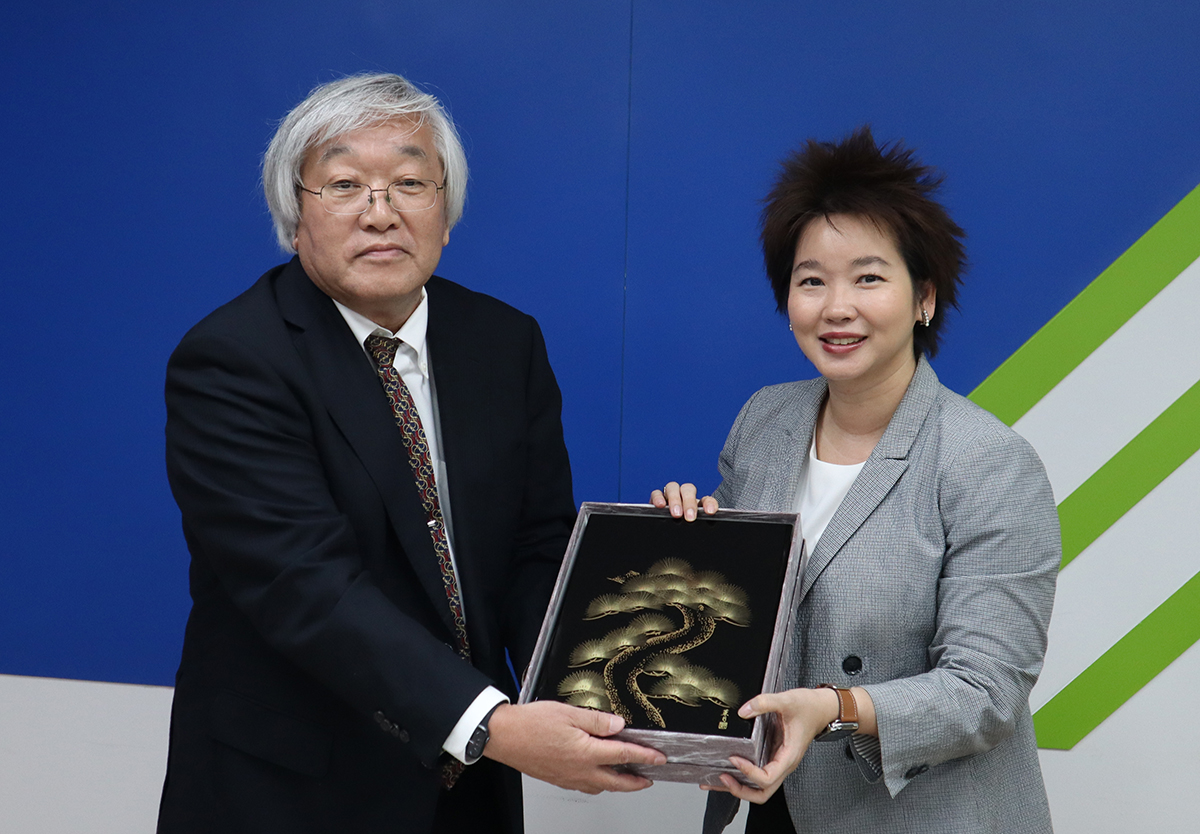
In Indonesia, UEC collaborates with the Ministry of Information and Communication and the Institut Teknologi Bandung to offer internships. In Vietnam, UEC collaborates with institutions such as the Vietnam National University, Hanoi, and leading companies like Financing and Promoting Technology Corp. to offer internship opportunities for students. Similarly, in Malaysia, UEC joins hands with Multimedia University, Telekom Malaysia and others to furnish students with invaluable on-the-job learning opportunities.
UEC alumni
Many international students have pursued their studies at UEC and returned to their home countries, ascending to positions as university professors or industry leaders. Consequently, UEC alumni associations can be found globally, cementing an expansive international network. One of the standout initiatives is the UEC International Ambassador System. This system appoints international students who have graduated from UEC as ambassadors. Through these ambassadors, UEC amplifies its international exchange activities in their respective countries and encourages exceptional international students to choose UEC for their academic pursuits. These ambassadors actively promote the UEC’s study abroad programs at their alma maters and also participate in international gatherings, such as the UEC Seminar in ASEAN.
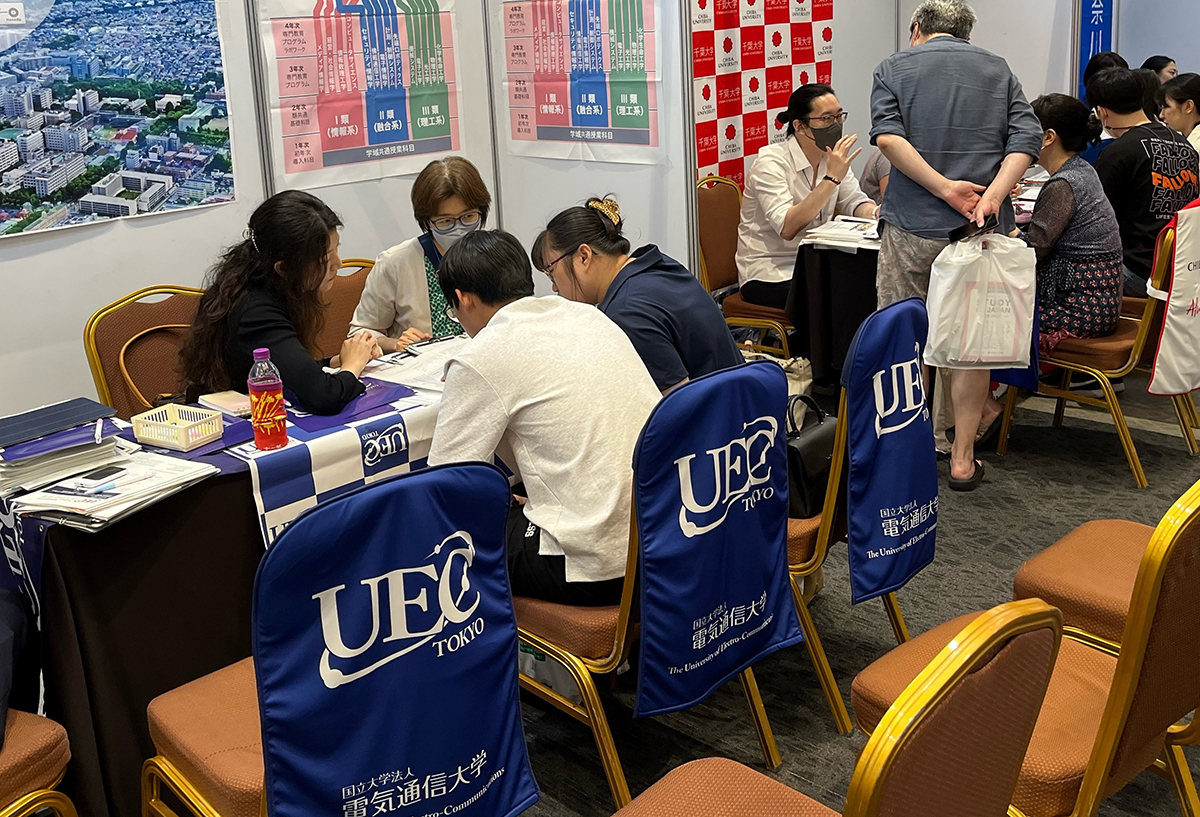
Employment support
The International Education Center at UEC offers job placement assistance specifically tailored for international students who have attained sufficient proficiency in the Japanese language. At the IEC, students are exposed to content that enhances their comprehension of Japanese society, corporations and culture through academic courses and advanced Japanese classes. Depending on the academic term, specialized Japanese sessions might be organized to equip students for the job-hunting process, which includes tasks like drafting entry sheets and preparing for interviews. Recognizing the need for inclusivity, starting from 2022, seminars in English have been made available for students whose Japanese-language capabilities are still developing.
A majority of Japanese firms mandate Japanese-language proficiency when recruiting international students. Given their specialized expertise in fields like science, engineering and information technology, UEC students equipped with Japanese-language abilities generally have a smoother path to employment within Japan. By familiarizing themselves with the Japanese job-hunting process and its timeline, and by diligently following through with the requisite activities, these students stand a strong chance of securing employment in the country.
The alumni association plays a pivotal role in facilitating job searches, offering an array of services including mock interviews, sector-specific information sessions and internship assistance. A standout feature is the availability of seasoned engineers from the alumni base who provide career advice. This distinguishes the alumni support from the university’s employment assistance. Being engineers with extensive industry experience, these alumni mentors can offer precise advice on technical interviews and insights into the industry’s unique dynamics, showcasing the strength and value of UEC’s alumni network.
Toward a smart society
At present, UEC researchers and students are vigorously engaging in collaborations with domestic and international industries, as well as research and development institutions. Their goal is not only to amplify their research and academic prowess but also to make diverse societal contributions, such as bolstering local industries.
Tano expressed UEC’s eagerness to persistently welcome joint research ventures with international firms that resonate with the vision of co-creating an evolutionary smart society.
This page is sponsored by the University of Electro-Communications.
The University of Electro-Communications
Address: 1-5-1 Chofugaoka, Chofu-shi, Tokyo 182-8585, Japan
Tel: +81-42-443-5019
E-mail: [email protected]
URLs: https://www.uec.ac.jp/
https://www.uec.ac.jp/eng/
Download the PDFs of this ASEAN-Japan 50th anniversary Special



